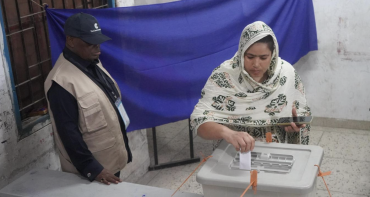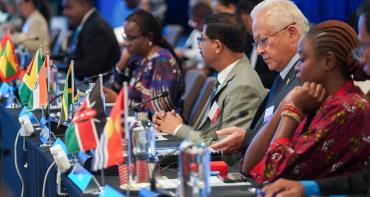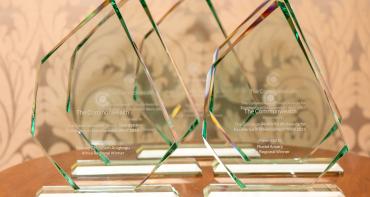By Thanisa Naidu-Lewin, Counsellor (Multilaterals), South African High Commission to the UK.

As a woman of colour, of Indian descent, born in Durban in 1980 under apartheid South Africa, a system which denied people like me the basic dignity of self-determination and equal access to educational opportunities, the idea of representing South Africa as a diplomat on a global stage seemed unimaginable.
Refusing to submit to the system, my parents introduced me to the Black Consciousness and anti-apartheid movements at an early age. They instilled a belief that we would win our freedom, and that education would be critical to this transformation.
At 24, I was awarded a Chevening Scholarship — a life-changing opportunity. It enabled me to pursue a Master of Laws in Public International Law at the London School of Economics and Political Science. On my return to South Africa, I joined the foreign service in the International Law Division, serving as State Law Adviser (International Law) in the Office of the Chief State Law Adviser (International Law), learning from some of the country’s most formidable legal minds in international law.
Today, I serve as a Counsellor (Multilateral) at the South African High Commission in London and, last month, a wonderful accolade was bestowed upon me: Education Attaché of the Year for Africa by Embassy Network.

Nelson Mandela with Commonwealth Secretary-General Chief Emeka Anyaoku outside Marlborough House,1993.
I always viewed my return to the UK, as a diplomat, as an opportunity to give back. I relish building partnerships, forging connections, representing South Africa’s national interests, and contributing to a global dialogue in ways that can help my country shine on the world stage. This desire especially acute in the sphere of education, because when challenges at home are immense, we are reminded of the words by former President Nelson Mandela:
“Education is the most powerful weapon which you can use to change the world.”
London represents an opportunity to open doors and help direct resources toward African students, educators, researchers, and institutions eager to participate in global discourse and innovation. South Africa urgently requires high-level technical skills and a better return on the funds invested across primary, secondary and tertiary institutions.
Through my role, I have engaged with leading academic institutions and think tanks, including Chatham House, Imperial College London, SOAS, LSE, UCL, King’s College London, the University of Westminster, and the University of Oxford — with education often at the heart of the discourse. I worked closely with Chatham House’s Africa Programme to provide insights on issues shaping UK–Africa relations, including South Africa’s G20 Presidency and the urgent need to include young voices in global governance.

In collaboration with institutions like SOAS, I facilitated dialogues on Africa’s debt burden, the cost of capital, and the disproportionate impact of trade barriers that hinder the continent’s ability to compete globally. I have also engaged on the intersection of race and gender and the structural inequalities that persist in higher education with the University of Westminster.
At events focused on developing and Least Developed Countries, particularly within the Commonwealth, I approached every opportunity with a guiding question: How can these engagements contribute meaningfully to addressing South Africa’s triple challenges: poverty, inequality, and unemployment? Often, the answer is in education, capacity building, and long-term partnerships.
I see education and professional development as central to South Africa’s economic transformation, and we must use every opportunity to facilitate this.
Education was the key that unlocked my own potential and allowed me to imagine a life in public service. I believe it is the most powerful tool we possess to build a more equitable future. If I could become a diplomat, a little brown girl from Durban, who is now representing South Africa with dignity and purpose, then I am determined to open doors for others to do the same.
Prior to her current posting, Naidu-Levin was Deputy Head of Mission at the South African High Commission in Canberra and Legal Counsellor at the South African Embassy in The Hague.



